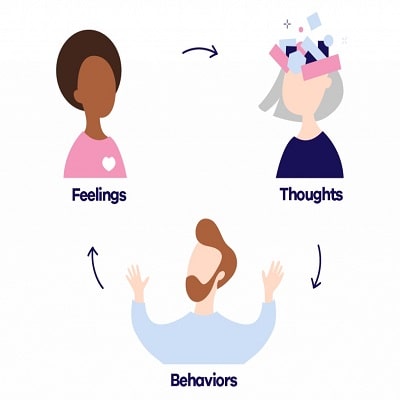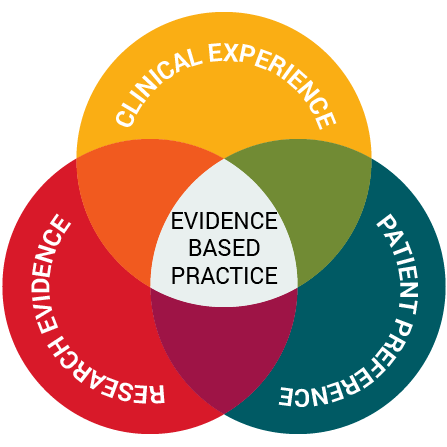What are Cognitive Distortions?
Cognitive distortions are biased and negative perspectives that we take upon ourselves and the world surrounding us. These are irrational beliefs that are developed over time in response to adverse events. Often, these beliefs are so subtle that it is hard to separate them from day-to-day thoughts.
Aaron Beck first identified these distortions in his research with depressed patients in the 1960’s. First, they become a core part of his cognitive theory of depression and, later, cognitive behavioral therapy (CBT).
Cognitive distortions come in various forms but they have certain similarities-
- They are inaccurate or false.
- They are thinking about patterns or beliefs.
- They can cause psychological damage.
While most people don’t recognize these distortions in their day-to-day lives, it is highly unfeasible to escape them entirely. If you’re a human, you may have faced these distorted patterns at some point.
While numerous distortions are floating in literature, we’re going to limit the list to ten.
10 Common Cognitive Distortions
1. Arbitrary Inference
An individual facing this distortion often creates an interpretation of an event or experience where there is no factual evidence to back up the situation. For instance, as Bob was entering his classroom, he thought to himself, “everyone can tell that I’m not smart.” Bob has no superpowers, which allows him to sneak-peek into others’ minds, and it is improbable that everybody is thinking of him since people are usually wrapped up in their thoughts just as he is.

2. Jumping to Conclusions
Jumping to a conclusion, also known as Mind Reading, forms a false belief that we are aware of others’ thoughts. It is often likely to have an idea of others’ thinking, but this distortion focuses on the negative consequences that we jump to. A stranger walking on the street with unpleasant expressions and concluding that they think negatively of us is the simplest example of this distortion.

3. Selective Abstraction
This distortion persuades an individual to focus on a detail taken out of context, and shutting down other characteristics of the situation. Selective abstraction conceptualizes the whole experience based on a single element, which is often negative.
Take the example of Olivia; she delivered some lectures at her workplace and got a big round of applause at the end. In the feedback form, she received comments praising her talk; however, one candidate criticized the lecture and gave her poor ratings.
Due to selective abstraction, Olivia could only focus on the negative feedback and excluded all the positive comments. Consequently, she judged her lecture to be poor.
4. Personalization
Personalization is where a person believes that everything others do or say is directed towards them. They take everything personally, regardless of the situation.. People who experience this distortion compare themselves to others, trying to determine who is more confident, smart, or better looking.
An individual facing this distortion may also see themselves as the cause of every unfortunate or say not-so-happy event. For instance, “I got late for the party and caused everyone to have a terrible time. If I had only pushed my wife to get ready on time, this wouldn’t have happened.”
5. Absolutistic, dichotomous thinking

This distortion refers to the tendency of placing experiences in two different groups, for instance, filthy or immaculate, defective or flawless, sinner or saint.
Try understanding dichotomous thinking with this example-
Sophia either did things to perfection or not at all. She considered a speck of dust after hours of cleaning as filthy. Her way of thinking was either black or white; there were no shades of grey in her life.
6. Catastrophizing
Catastrophizing leads people to assume the worst or dread the unknown. People facing this distortion get worried easily. For instance, when an expected check doesn’t arrive on time. Charlie may escalate the fear and assume the worst. He starts worrying that the check will never come, and consequently, he will not be able to pay rent and be evicted.
7. Fallacy of Change
The fallacy distortion is based on the belief that our happiness rests on other people. It involves others to change if we persuade or pressurize them enough and lead us to believe that the changes are the only way to succeed and be happy.
For instance, a woman thinking, “if I just encourage my husband to stop doing things that annoy me, I can be a happier wife,” exhibits the fallacy of change.

8. Overgeneralization
Overgeneralization occurs when you make a rule or protocol after a series of events or coincidences. Words like "never" or "always" are frequently used.
Take the example of Joey, who, after a series of coincidences has inferred five as his lucky number, and even overgeneralized this to gambling situations involving the number five, regardless of the number of times he loses.
9. Emotional reasoning
Emotional reasoning is the incorrect belief that your emotions indicate truth, and what you feel about a situation points to reality. Emotional reasoning is common among people suffering from anxiety and depression.
For example, Lisa uses this distortion to conclude that she is a worthless woman, which results in binge eating.
Although it is essential to express and validate emotions, it is equally important to judge reality using rational proofs.
10. Heaven’s Reward Fallacy
The last one in the list is Heaven’s Reward Fallacy. An individual facing this distortion thinks that some sort of sacrifice or self-denial will pay off. For example, the term Karma is highly misunderstood. People expect the Karma to immediately be rewarded for our good deeds, which is a bit unlikely here. Actions do turn into consequences but in their due course.
People with this fallacy expect everything immediately and make unreasonable sacrifices for their desires.
How do you tackle Cognitive Distortions?
So, now you are aware of 10 common cognitive distortions, how do you fix them? Though it is a bit unlikely to erase these issues from humankind, there are specific ways to correct your irrational thoughts and control your actions.

There are many tools and techniques in Cognitive Behavioral Therapy (CBT) that are intended to address these distortions. Learn about various CBT techniques using the CBT Companion App that can help you in tackling these distortions and leave a peaceful life.




